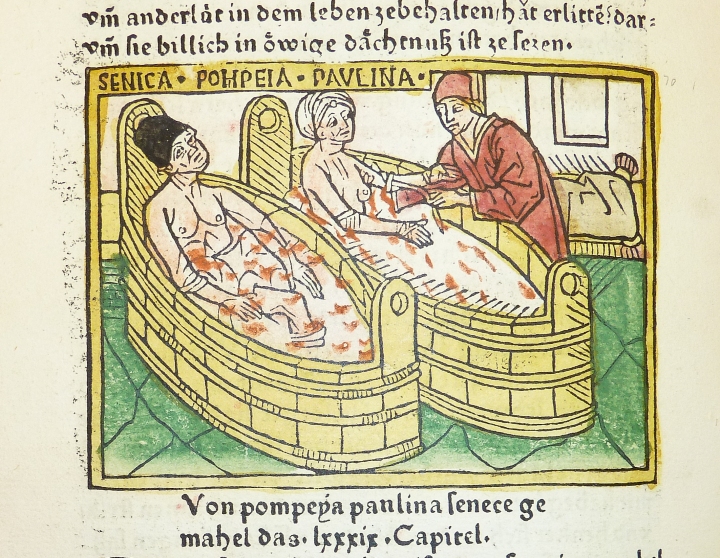
The Campaign for Dignity in Dying is gathering momentum. It has many well known advocates, including prominent actors and authors who promote the cause of physician-assisted suicide. Lord Falconer’s Assisted dying bill is soon to be discussed by a Lord’s committee, and polls indicate that the right to end your own life when sufferring from terminal illness is supported by many of the public. I disagree with this, not because I think terminally ill individuals should be forced to live with sufferring, but because I feel this is detrimental to how we recognise individuals’ dignity and worth in our society.
What is Physician Assisted Suicide?
Suicide needs very little definition, it is the act of ending one’s own life. Theoretically, this is an act of complete free will and has a history of religious condemnation. Much of the debate around ‘dignity in death’ stems from the challenge presented by degenerative illness. In most degenerative illnesses, individuals will reach a point where they lose their capacity to act, though they may not have lost their intellectual capacity to make and express a free choice. It is for this reason that families and individuals are campaigning for ‘the patient’s right to choose’ the place and time of their death by de-criminalising the act of a physician allowing their patients access to fatal drugs, and in the case of patients in an advanced stage of degenerative illness, the involvement of a physician or family member in the administration of the fatal drug.
In most countries around the world, access to definitively fatal substances is highly regulated, and they can only be accessed by medical professionals. Yet the long standing ethical practices of the medical profession, to first do no harm, as well as the legal dangers posed to the individual physician mandate against their involvement in cases where patients ask them for help to die. In addition, if the physician is the person to actually insert the needle or push the button there is very little to legally distinguish between medicine and murder.
Yet there is an argument that when a patient is certain to die, or can only survive with the minimal of life quality (as in individuals only alive due to life support machines with no hope of recovery), that such an action is compassionate. In such cases it is only the medical professional, with access to appropriate substances, who can enable a pain free death with the least amount of sufferring. It is also implied that it is only thanks to techniques of contemporary medicine that such a prolonged life span enduring degenerative disease is possible, and therefore the responsibility for any non-intervention or withdrawal of care leading to death also lies with the medical practitioner.
Rights and Duties
Do we have a right to choose? The debate over assisted suicide is based on a deep underlying assumption that we do, yet this is problematic not only on religious but also secular grounds. First there is the matter of scale, if we ought to have the right to choose the time and place of our death in the case of degenerative disease, then we should recognise that death is inevitable and therefore such choices ought to be valid outside of those circumstances. On religious grounds such decisions are a rejection of life and thus sinful or likely to provoke sufferring. In a secular vein, decisions taken to end ones own life when young and healthy are categorised as abnormalities, as expressions of sickness themselves.
A further conflict lies in the very idea of individual rights and the relationship between the individual and the body. It is a quirk of Western legal thought that the body and mind are understood as separate things. Although the embodied person may have rights, those rights do not include ownership of another body (which would be slavery) or of one’s own body (in the sense of exchange, so to sell body parts or the use of one’s body is also often illegal).
Finally, the concept of rights identifies the individual as a separate creature, detached from ties to others. The rights of the individual are often held as paramount over the obligations, duties or other responsibilities between that individual and others. The concept of the individual as a being apart from their social ties is a foundation of rational legal thought, but it omits our emotional interconnectedness as human beings as well as our role in enabling the capacities of others. Although suicide may appear to be an expression of free choice, most individuals see suicide as a last resort, where all alternatives for meaningful life are denied them. Perhaps we should be doing more to explore these alternatives.
The Individual Citizen
We live in a society dominated by thinking that concentrates on a model of the individual. Assisted suicide may alleviate the pain of the patient, but how does it affect their family, friends, neighbours or co-workers? Aside from the concerns of the family this is a debate not often explored, primarily because we already segregate the sick from the healthy in contemporary society. Sickness prevents participation in work, often requiring residential care in a hospital or other institution. Built environments primarily cater to the healthy and able-bodied individual, further excluding those sufferring from illness from full participation in society. Might this be a part of why these individuals feel they simply cannot experience a worthy or dignified life as their illnesses progress?
Dignity and sufferring
While the aim of the dignity in dying movement implies restoring control to patients and allowing them to experience less pain and sufferring, the model of physician assisted suicide has already been tested. In research conducted on Oregon’s legalisation of physician assisted suicide, it has been noted that individuals’ sufferring and requests for assisted suicide were based not on the pain experienced by the illness, but rather as a consequence of social exclusion.
It’s not that I disagree with the need for terminally ill patients to experience death with dignity, but I do think that lethal injections, access to drugs or the rights of the patient is not the main issue at stake here. What potential we offer the sick or the sufferring to engage with a meaningful life is at stake. How should we amend our laws and regulations to support people sufferring from illness in a society dominated by a drive for economic productivity that pursues segregation between the productive and the unproductive?
